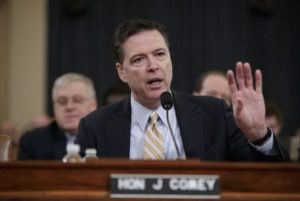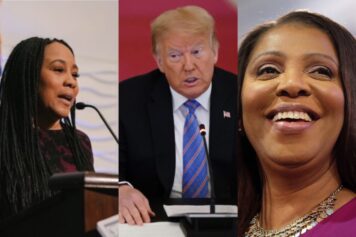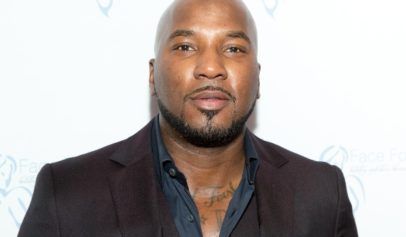
FBI Director James Comey wanted to write an op-ed for The New York Times detailing Russia’s interference in the presidential election. Image courtesy of REX/Shutterstock.
FBI Director James Comey wanted to go public last summer with details regarding Russian efforts to influence the 2016 election, but officials from the Obama administration blocked him from doing so, sources with knowledge of the matter have said.
Long before the Department of Homeland Security and officials with the Office of the Director of National Intelligence accused the Kremlin of meddling in the presidential election, Comey reportedly pitched the idea of penning an opinion piece about the Russian campaign during a July meeting at the White House. Former Secretary of State John Kerry, Attorney General Loretta Lynch and DHS Secretary Jeh Johnson, among others, also were reportedly in attendance at the meeting.
“He had a draft of it or an outline,” an unnamed source told Newsweek. “He held up a piece of paper in a meeting and said, ‘I want to go forward. What do people think of this?'”
Many in the room scoffed at his idea, however, with the White House suggesting that such a bombshell announcement be a coordinated message supported by multiple federal agencies, not just one person.
“An op-ed doesn’t have the same stature,” the source said.
A second source familiar with Comey’s request said his op-ed, which he wanted published in The New York Times, would not mention whether the FBI was investigating Donald Trump’s campaign or others close to him for ties to Russia but would discuss how Russian leader Vladimir Putin was attempting to rig the presidential election.
Russia also was suspected of hacking Democratic National Committee emails and leaking questionable information with the intention of smearing the image of Democratic presidential nominee Hillary Clinton.
“Russia’s goals were to undermine public faith in the U.S. democratic process, denigrate Secretary Clinton and harm her electability and potential presidency,” read a declassified intelligence report detailing Russian interference in the election published Feb. 6. “We further assess Putin and the Russian government developed a clear preference for President-elect Trump.”
The FBI and other U.S. intelligence officials have since launched investigations into Trump’s ties to Russia and whether members of his administration had been in contact with Russian envoys during the election. Just last month, National Security Adviser Michael Flynn resigned after he admitted to misleading Vice President Mike Pence and other administration officials about conversations he had with a Russian government official.
Putin has vehemently denied meddling in the U.S. election, calling the accusations “fictional, illusory, provocations and lies.” When asked during a panel session Thursday, March 30, if he had any involvement in getting Trump elected, the Russian president responded, “Read my lips. No.”


